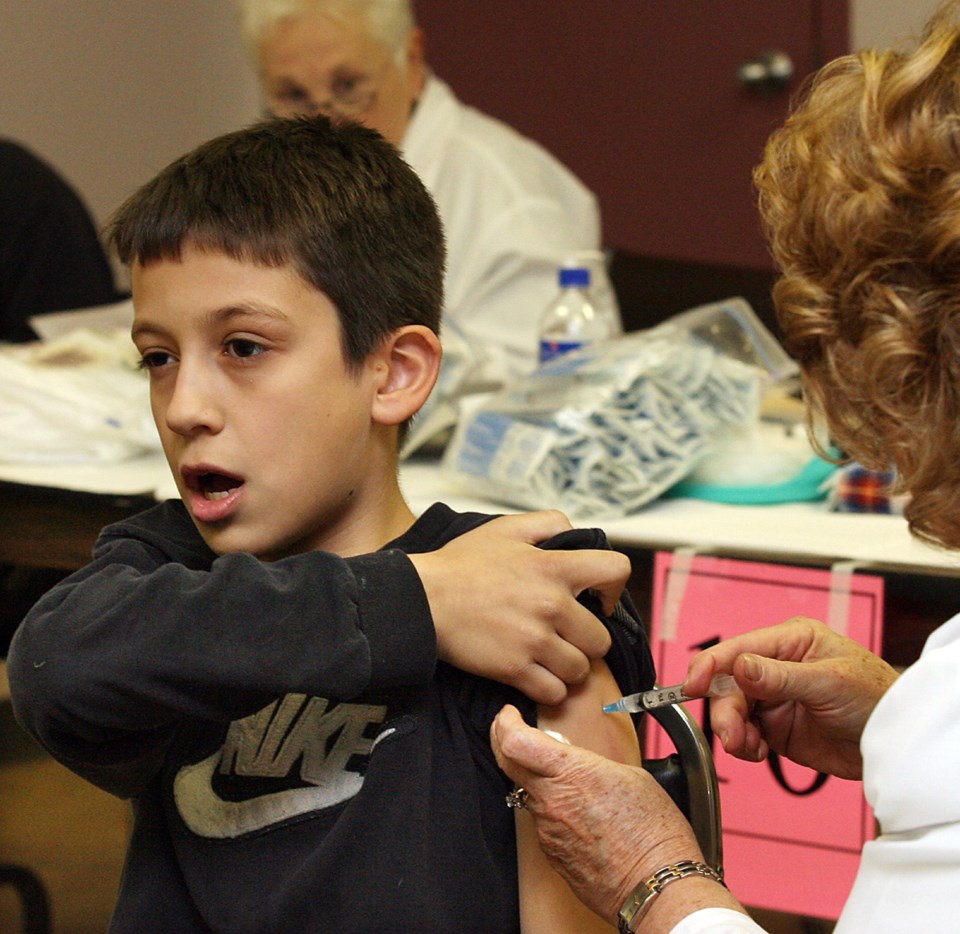The flu-vaccine clinic was crowded and my kids were bored. Clayton and I were doing our best to keep them busy, and it was a relief when the nurse finally called our number.
One of our brood hopped up on the chair. But when the needle came out, this child exercised both personal boundaries and voice with a fierce will.
“I say no! No means no, and that means you can’t do it!” my kid shouted as 30 people watched.
Never mind that we had explained the vaccine before we came and our kiddo had agreed it made sense and consented to the shot. This one had lost all nerve.
This might be no big deal to many parents, but for me, it was an ethical dilemma. I believe in giving children control of their own bodies, within reason and safety, and permission to protect their physical boundaries.
Raising kids who are unafraid to say, “Stop touching me like that! I don’t like it!” — and who have been taught to back off when someone says no — will lead to teens and adults who are more likely to do the same.
I also believe in fully explaining medical procedures to children, to the level of their understanding, and in involving them in the decision-making as appropriate. This is easy when your children are small; they cannot make these decisions themselves. They need the filling or the eye surgery or the intravenous fluids, and so you do it, and comfort them.
It’s also easy in an emergency situation. If one of my kids is severely ill or injured, I am going to consent to appropriate medical treatment, no matter how much they might dislike it.
When they get older, though, I think it’s a give-and-take. I am responsible for their safety and best interests, but they are the owners of their bodies. They will have to live in those bodies their whole lives, but it’s my job to make sure they get a whole life.
So where does a vaccine fall into that? It is preventive health care that has saved millions of lives, and may protect this child from a potentially deadly virus. It is safe, scientifically sound and effective. It protects the more vulnerable members of society, people with autoimmune disorders or those who cannot receive the vaccine for health reasons.
(Please don’t email me anti-vaccine rhetoric. I respect parental autonomy to make vaccine decisions. I disagree with anti-vaccination claims, and there’s nothing you can say that will dissuade my informed opinion on this issue.)
But I had a kid yelling “no means no!” at the top of his lungs, in public, and about three seconds to make this decision.
I took my child into my lap, gave a hug, held on tight and said, “We discussed this earlier and you agreed. Now you are disagreeing. I hear you. But I say yes, and at your age, this is my decision to make. It is my job to keep you safe. When you are bigger, you will make this decision completely on your own.”
As I spoke, the nurse slid the needle into the arm — and my kid immediately stopped struggling.
“Oh, that didn’t hurt,” child of mine announced as the needle came back out. “I was just scared it would hurt is all. Can I have a sticker now?”
The kids all got stickers, and went home happy.
Next year, we’ll get their flu shots at the doctor’s office, where we can have any medical ethics discussions without an audience.


